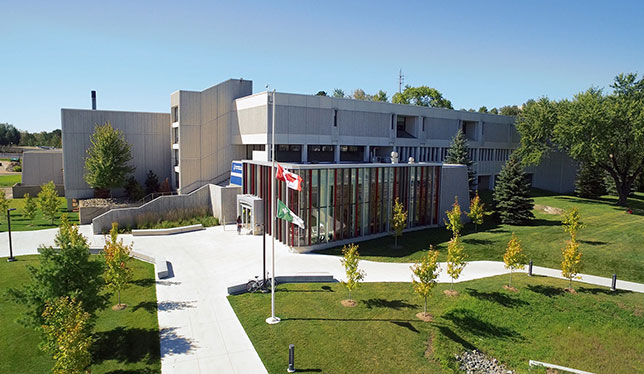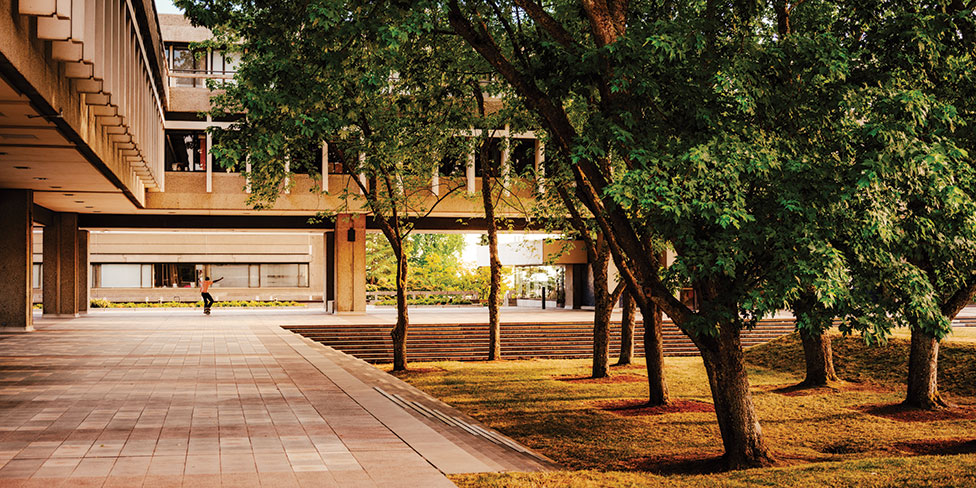Canadians need universities — and so will their next government
Higher education is the missing piece in Canada’s economic strategy.

Imagine a world without doctors, nurses, engineers, teachers or scientists. A world without cutting-edge technological research, life-saving medicine, or decades of innovation that have shaped the way we communicate. A place where earning a degree isn’t an option, where career ambitions are blocked and higher salaries are out of reach. Each of these scenarios is rooted in higher education. The contributions of universities are undeniable — yet, too often, their critical role in shaping Canada’s future is overlooked.
The challenge ahead for universities comes after ballots are cast and a new government is sworn in. The global geopolitical landscape is shifting rapidly — change is happening whether we are ready for it or not. In more recent years universities have struggled to demonstrate our value in a practical way, butting heads with a political climate that often paints higher education as disconnected from the everyday realities of Canadians.
There is an unsettling and persistent view that universities are for the few, rather than the many, which is undermining their immense contributions to society and our economy.
In this federal election, it’s increasingly clear the ballot box question will be tied to one fundamental issue: How do we secure Canada’s future in an increasingly insecure world? Candidates will debate tariffs, trade barriers and Canadian sovereignty. But one thing is clear: no serious plan for our future can ignore the essential role of higher education. It’s up to us to make that case.
Universities are at the heart of Canada’s economic and social future — fueling innovation, investing in STEM and technical training, preparing the next generation of skilled workers and empowering Canadians to secure employment, earn competitive salaries, enhance international relations, and foster critical thinking to build a better future.
A university education equips students to question assumptions, analyze evidence and communicate ideas — skills that prepare them for active participation in their communities and, perhaps most importantly, for leadership — a fundamental skill in securing Canada’s future.
It’s often completely overlooked in the discourse around the value of universities that bachelor’s degree holders earn, on average, 24 per cent more than the national average. Or that in 2022 alone, universities secured 272 patents and attracted $17 billion in research and development investment — accounting for 35 per cent of Canada’s total. Research conducted at Canadian institutions has led to breakthroughs in artificial intelligence, medical treatments and clean energy — sectors that are vital to our long-term prosperity.
By working collaboratively with the government and the private sector, universities have a real opportunity to prove our impact, strengthen Canada’s competitive edge and incent lasting economic resilience. Politicians keep saying “the world needs more Canada” and universities have actual proof to help government make that pitch.
We need to tell our own story. Our commitment to excellence has made universities economic incubators for artificial intelligence, medical treatments and sustainable agriculture — sectors that are vital to Canada’s long-term prosperity and directly impact our economy and daily lives.
Let’s dig into some practical examples. The University of Waterloo has been instrumental in fueling Canada’s tech sector, supplying companies like BlackBerry, OpenText, and Shopify with highly skilled graduates. Its research partnerships have also helped Canada stay competitive in artificial intelligence (AI) and quantum computing.
Similarly, Montreal’s universities, including McGill and Concordia, have collaborated with Bombardier and CAE to drive innovation in aerospace engineering and flight simulation, strengthening Canada’s aviation sector, contributing billions to the economy and creating thousands of high-skilled jobs.
Across other fields, universities are driving transformative research. At Western University, scientists are making significant strides toward curing ALS, potentially revolutionizing the treatment of neurodegenerative diseases. The University of Saskatchewan’s research in crop genetics has positioned Canada as a global leader in wheat and canola production, ensuring food security and sustainability. Dalhousie University’s Ocean Frontier Institute is advancing sustainable ocean management, supporting the growth of Canada’s blue economy.
Meanwhile, Thompson Rivers University’s Centre for Wildfire Research is developing solutions to mitigate the increasing threats of extreme heat and wildfires, helping safeguard communities and ecosystems across Canada.
These are just a handful of tangible outcomes demonstrating universities’ ROI to the overall prosperity and resilience of our nation.
Universities are resilient and ready to rise to the occasion, to join forces with Canada’s business community and policymakers to help mitigate the economic challenges ahead. We are the missing piece in Canada’s economic response.
We need to be proactive and clear about our value — not just to elected officials, but to the very people that walk through our campus doors excited for the futures that lie ahead of them: our students. Canada’s future — our promise — depends on it.
Featured Jobs
- Law - Assistant or Associate Professor (International Economic Law)Queen's University
- Engineering - Assistant or Associate Professor (Robotics & AI)University of Alberta
- Geography - Assistant Professor (Indigenous Geographies)University of Victoria
- Architecture - Assistant Professor (environmental humanities and design)McGill University










Post a comment
University Affairs moderates all comments according to the following guidelines. If approved, comments generally appear within one business day. We may republish particularly insightful remarks in our print edition or elsewhere.